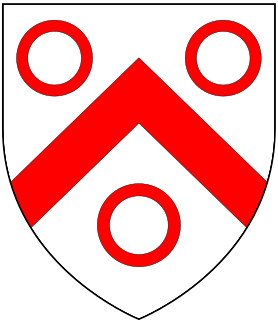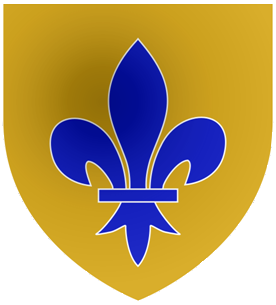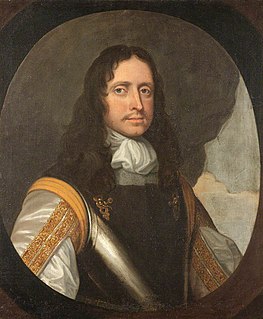Related Research Articles

George Goring, 1st Earl of Norwich was an English soldier and politician who sat in the House of Commons between 1621 and 1628 when he was raised to the peerage.

Thomas Clifford, 1st Baron Clifford of Chudleigh was an English statesman who sat in the House of Commons from 1660 to 1672 when he was created Baron Clifford.
John Seymour may refer to:

Sir William Batten was a naval officer and administrator from Somerset, who began his career as a merchant seaman, served as second-in-command of the Parliamentarian navy during the First English Civil War, then defected to the Royalists when the Second English Civil War began in 1648. After the 1660 Stuart Restoration, he was elected Member of Parliament for Rochester and re-appointed Surveyor of the Navy, a position he had previously held from 1638 to 1648. In this capacity, he was a colleague of the author Samuel Pepys, who mentions him frequently in his "Diary", often to his detriment.
Sir John Ernle was an English politician who sat in the House of Commons at various times between 1654 and 1695. He was one of the longest-serving Chancellors of the Exchequer, a position he held from 2 May 1676 to 9 April 1689.

Alexander Popham of Littlecote, Wiltshire, was an English politician who sat in the House of Commons at various times between 1640 and 1669. He was patron of the philosopher John Locke.
Sir Richard Onslow was an English politician who sat in the House of Commons at various times between 1628 and 1664. He fought on the Parliamentary side during the English Civil War. He was the grandson of one Speaker of the House of Commons and the grandfather of another, both also called Richard Onslow.
Henry Powle was an English lawyer and politician who sat in the House of Commons at various times between 1660 and 1690, and was Speaker of the House of Commons from January 1689 to February 1690. He was also Master of the Rolls.
George Berkeley, 1st Earl of Berkeley PC FRS was an English merchant and politician who sat in the House of Commons from 1654 until 1658 when he succeeded to the peerage.

Sir John Northcote, 1st Baronet was an English politician who sat in the House of Commons at various times between 1640 and 1676. He supported the Parliamentarian cause in the English Civil War.

Scrope Howe, 1st Viscount Howe of Langar Hall, Nottinghamshire was an English politician. He was the Member of Parliament (MP) for Nottinghamshire from 1673 to 1685 and January 1689 to 1691, and from 1710 to 1713.

Sir William Courtenay, 1st Baronet was an English politician.

Sir William Portman, 6th Baronet FRS was an English politician who sat in the House of Commons between 1661 and 1690.

Sir Francis Wyndham, 1st Baronet of Trent, Dorset was an English soldier and politician who sat in the House of Commons of England at various times from 1640 until his death in 1676. During the First English Civil War, he served as a colonel in the Royalist army and helped Charles II of England escape to France after his defeat in the 1651 Third English Civil War.
Sir Francis Knollys of Reading Abbey, Berkshire was an English privateer and politician who sat in the House of Commons at various times between 1575 and 1648.

Sir Thomas Myddelton, 1st Baronet was a Welsh politician who sat in the House of Commons variously between 1646 and 1663. He supported the Parliamentary cause in the English Civil War but later took part in the Cheshire Uprising (1659) in support of the Restoration.
Sir John Franklyn of Dollis Hill, Middlesex was an English politician who sat in the House of Commons at various times between 1625 and 1648.

Sir Gilbert Hoghton, 2nd Baronet was an English politician who sat in the House of Commons variously between 1614 and 1640. He was a Royalist leader during the English Civil War.
Sir Henry Peckham (1615–1673) was an English landowner, lawyer, judge, administrator, and politician who sat in the House of Commons as MP for Chichester in Sussex at various times between 1654 and 1673.
Sir Robert Bolles, 2nd Baronet was an English politician who sat in the House of Commons from 1661 to 1663.
References
- 1 2 3 W R Williams (1898) Parliamentary History of Gloucester
- ↑ Knights of England
- ↑ Willis, Browne (1750). Notitia Parliamentaria, Part II: A Series or Lists of the Representatives in the several Parliaments held from the Reformation 1541, to the Restoration 1660 ... London. pp. 229–239.
- ↑ Historic England. "Parish Church of St Mary, Bitton (1116770)". National Heritage List for England . Retrieved 21 November 2022.